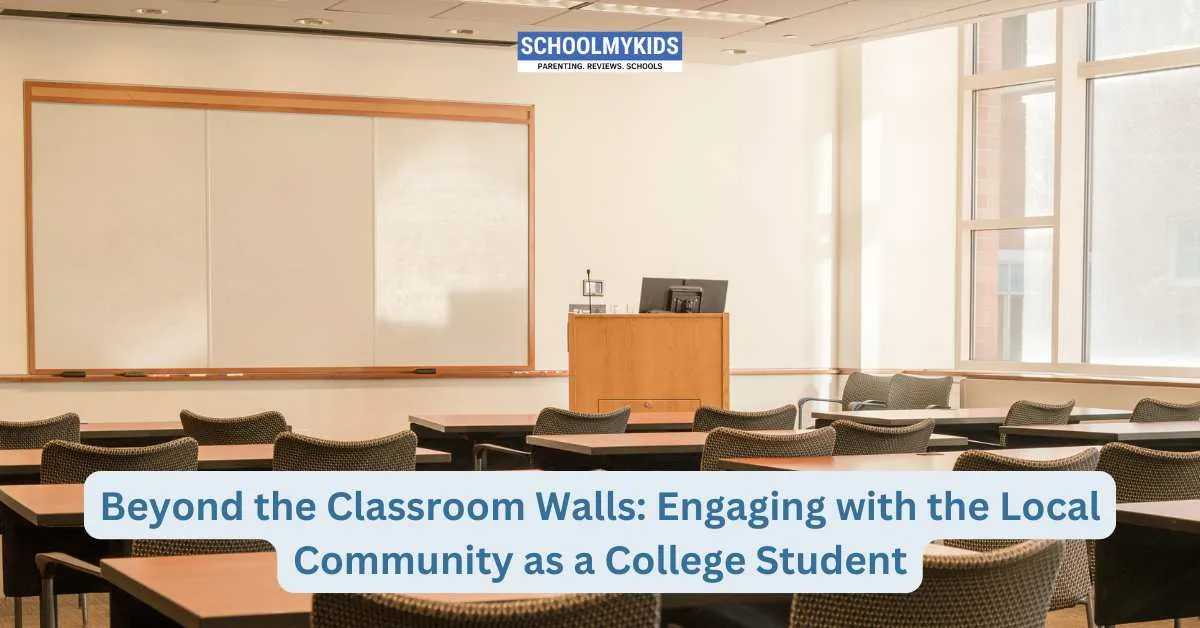Introduction
College life is often seen as a self-contained world—a bubble filled with classes, clubs, hostels, and campus events. But just outside those gates is another world: the local community. Whether it's a bustling urban neighborhood, a rural town, or a quiet suburban area, the community surrounding a college plays a vital, often overlooked, role in a student’s growth. Engaging with that community isn’t just about service—it’s about learning, connecting, and becoming a more responsible citizen.
Why It Matters More Than You Think
When students interact with the local community, they gain far more than volunteer hours or resume points. They develop empathy, cultural awareness, and a broader sense of purpose. Engaging with different walks of life helps break down stereotypes, fosters mutual respect, and reminds students that education isn't just about grades—it's about real-world impact.
Many colleges promote global awareness, but local awareness is just as essential. Understanding the issues, histories, and people in your surrounding area deepens your understanding of society and your place within it.
Opportunities Are Everywhere
Community engagement doesn’t have to be formal or institutional. It could be as simple as participating in local festivals, supporting neighborhood businesses, volunteering at a shelter, teaching at a nearby school, or helping with environmental clean-ups. Interning with local NGOs, assisting in community health drives, or even offering digital literacy classes to senior citizens are all valuable ways to contribute.
For students studying education, social work, medicine, journalism, or law, these experiences provide hands-on learning that textbooks can’t replicate. But even for those in engineering, business, or design, understanding local challenges can inspire innovative solutions and socially responsible entrepreneurship.
Breaking the Bubble of Privilege
Many colleges, especially those with residential campuses, are surrounded by under-resourced communities. Students may spend years studying within walking distance of people struggling with poverty, health issues, or educational barriers—without ever interacting.
This disconnection creates a dangerous illusion: that real-world problems are distant or abstract. Stepping outside the academic circle and entering the local community challenges that perspective. It reminds students of their privilege, their power, and their responsibility to give back.
Building Skills While Giving Back
Engaging with the community builds soft skills like leadership, collaboration, adaptability, and emotional intelligence. It pushes students out of comfort zones and into environments where they must listen more, assume less, and adapt quickly.
These are the same skills that employers value highly—but more importantly, they’re the skills that build better humans. Students who engage with the community often report feeling more grounded, self-aware, and confident about their place in the world.
How Colleges Can Help
Institutions can encourage community involvement by integrating service learning into the curriculum, offering credit for civic engagement projects, or supporting student-led initiatives with funding and mentorship.
Campuses can create dedicated community engagement centers, offer volunteer fairs, or host forums where students and local residents collaborate on solutions to shared issues. Even simple efforts—like including community members in cultural events or hosting public lectures—can strengthen bonds.
Becoming a Better Neighbor
Community engagement isn't a one-way street. It’s not about students “saving” or “fixing” anything. It’s about mutual learning, shared stories, and collaborative growth. Being a good neighbor means showing up with humility, curiosity, and consistency—not just during project deadlines or festival seasons.
When students engage authentically, they leave college not just with a degree, but with relationships and responsibilities that extend beyond their personal goals.
Conclusion
College students have the energy, creativity, and curiosity to make a real difference—but the impact starts just outside the classroom walls. By stepping into the local community, students can turn education into action, build meaningful connections, and become citizens who care, not just for their careers, but for the world around them.








Be the first one to comment on this story.